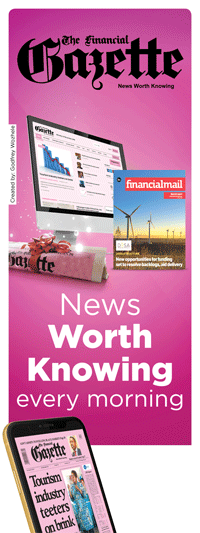

AFRICA’S burgeoning mobile-banking industry has gained fresh momentum with governments boosting payments through phones, a measure aimed at curbing the coronavirus by reducing the physical exchange of cash.
Kenya is ramping up its use of technology platforms offered by Vodafone Group Plc’s M-Pesa, Airtel Kenya Ltd. and Telkom Kenya Ltd. since the pandemic to disburse aid directly to businesses and individuals using mobile money rather than through banks or food parcels.
Ghana on Wednesday also started pumping stimulus to at least 100 000 micro, small and medium-sized enterprises using mobile money.
Pioneered by Vodafone’s Nairobi-based Safaricom Plc in 2007, mobile money has become an indispensable part of how Africa’s 1.2 billion people pay for goods and services, buy funeral cover or borrow money, without a smartphone. Now, the need from governments to find a quick and safe way of sending funds during the pandemic is underscoring the service’s increasingly systemic role.
“Government disbursing monies via M-Pesa shows high integrity has been accorded to the platform,” said Tracy Kivunyu, an analyst at Tellimer Ltd. in the Kenyan capital, Nairobi.
While Europeans are shunning cash for cards over hygiene concerns, some African nations lack the infrastructure to rely only on plastic. As restrictions on movement to curb Covid-19 infections prevent customers from accessing cash, more are turning to mobile money to fill the gap.
After Kenya’s partial lockdown started in March, a million new users joined M-Pesa, taking subscribers to 25 million, or about three quarters of Kenyans over 15.
In Ghana, mobile money purchases reached a record in March, according to central bank data, while a cash shortage in Zimbabwe means 90 percent of transactions are done digitally.
Nigerian startup digital bank Kuda said it opened more accounts in April than the prior three months combined.
Togo, a nation of eight million, was able to distribute emergency financial support to 500 000 people, mostly women, in less than two weeks using mobile phones, according to the International Monetary Fund.
“These changes, triggered by Covid-19, have enabled the acceleration and scaling of cashless and digital economies,” said Serigne Dioum, head of mobile-financial services at MTN Group, the continent’s largest wireless carrier.
“They support our ambition to transition to an end-to-end platform, creating a digital market place, connecting consumers to businesses, and businesses to businesses.”
Mobile money is the fastest-growing source of income for wireless-network operators like Johannesburg-based MTN and the African units of Newbury, England-based Vodafone Group.
Sub-Saharan Africa has more mobile-money accounts than anywhere else in the world, with about 396 million at the end of 2018, or 46 percent of all customers, according to the GSMA, the global mobile-operator industry group.
— Bloomberg
Sorry. No data so far.

